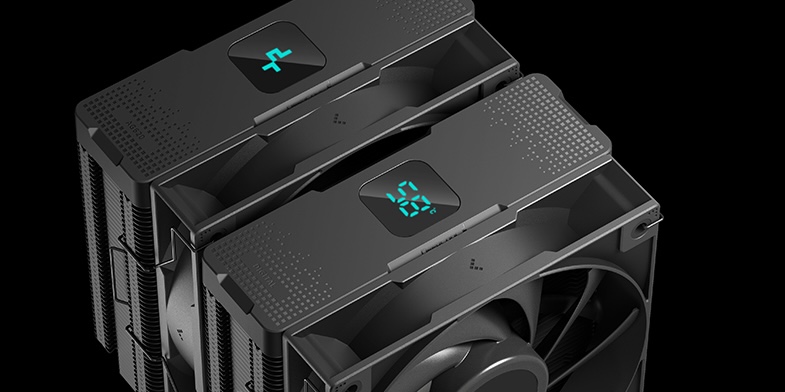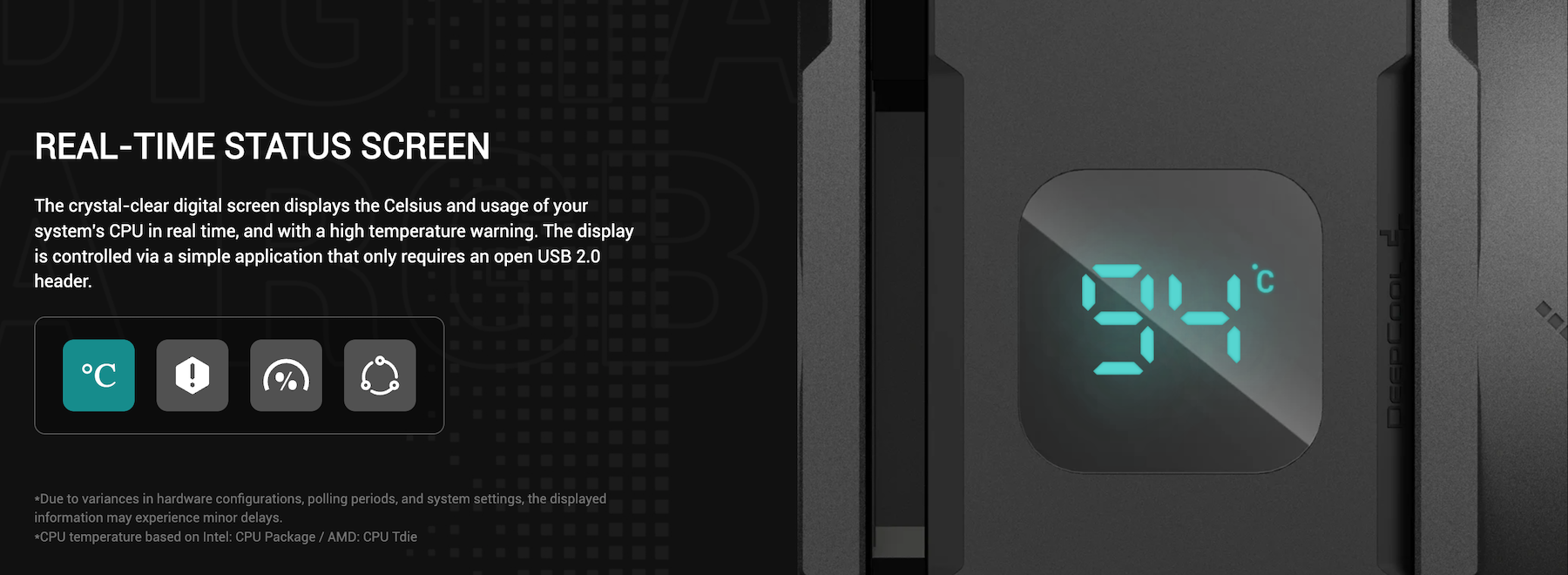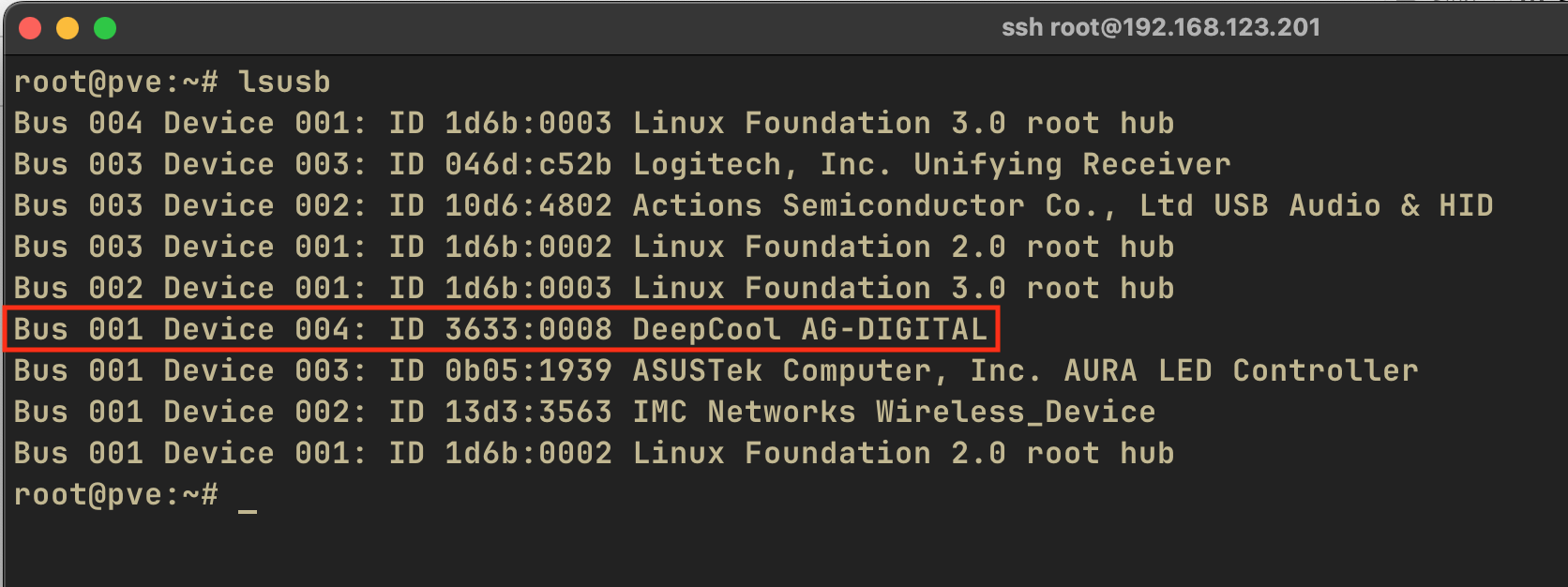Porting DeepCool communication to Linux to get AG620 CPU cooler stats display working

Recently I moved away from Intel to AMD with AMD Ryzen 7 5700X CPU. With that I had to get a new CPU cooler as well. Between the coolers I looked into, I picked DeepCool AG620 Digital because it has a little display which shows current CPU temp and usage as a percentage. It uses one of the USB 2.0 headers in the motherboard to communicate.

Unfortunately, I found out soon enough that the DeepCool’s software only works on Windows. One of the reason I moved to the new CPU is to squeeze out few more VMs in Proxmox than my older Core i3 CPU. So the feature that I was excited about, will not work half of the time I use my PC.
I anyway ran lsusb in Proxmox to check whether the OS can recognize the attached cooler. It did recognize the cooler.

Next step was to figure out how the DeepCool’s software is communicating with the CPU cooler. For that I used Wireshark on Windows. I used the vendor_id from the lsusb output to isolate the communication between the host and the cooler using the filter usb.idVendor == 0x3633. With the output I figured out the device_address and put on another filter usb.device_address == 3. With that filter in place, it was visible that DeepCool’s software was sending URB_INTERRUPT to the cooler with CPU temps and usage. Looking into the HID data being sent to the cooler and what values being displayed in the cooler, I was able to decode the values needs to be sent in order to display the values.
When displaying CPU temp as 54c:
10 13 00 05 04 00 00 00 ... 00
When displaying CPU usage as 02%:
10 4c 00 00 02 00 00 00 ... 00
Second byte of the data contains the what type of value is being sent. 0x13 for temperature and 0x4c for usage.
Third and the fourth bytes contains the first and second digits of the value being sent. 0x05 and 0x04 for the temperature 54c. And 0x00 and 0x02 for CPU usage of 02%.
Update: fifth byte is used for turning on blinking for alerting as I found out during my testing.
With the information I was able to collect with my tiny experiment, I wrote a Go program to get the display on the cooler working under Linux. I checked it with Ubuntu 24.04 and Proxmox and the temperature and CPU usage values were displaying on the cooler just as on Windows. I set this up as a service and all was done.
While I used many ported applications and drivers in the past, this was the first time I was able to work something out for myself. It would be better if DeepCool themselves can release a version for Linux, but this was a good little exercise into monitoring and implementing USB communication.
package main
import (
"fmt"
"log"
"os"
"strconv"
"strings"
"time"
"github.com/dhamith93/systats"
"github.com/sstallion/go-hid"
)
func getCpuTemp() (int, error) {
sensorData, err := os.ReadFile("/sys/class/hwmon/hwmon0/device/hwmon/hwmon0/temp1_input")
if err != nil {
return -1, err
}
sensorMilliC, err := strconv.Atoi(string(strings.Trim(string(sensorData), "\n")))
if err != nil {
return -1, err
}
return sensorMilliC / 1000, nil
}
func getLoadAvg() (int, error) {
ss := systats.New()
cpu, err := ss.GetCPU()
if err != nil {
return -1, err
}
return cpu.LoadAvg, nil
}
func numberToArray(num int) []int {
strNum := strconv.Itoa(num)
result := make([]int, len(strNum))
for i, char := range strNum {
result[i] = int(char - '0')
}
return result
}
func main() {
var vendor_id, product_id, temp_mode, util_mode uint16 = 0x3633, 0x0008, 0x13, 0x4c
b := make([]byte, 65)
if err := hid.Init(); err != nil {
log.Fatal(err)
}
d, err := hid.OpenFirst(vendor_id, product_id)
if err != nil {
log.Fatal(err)
}
defer hid.Exit()
d.SetNonblock(true)
var value int
checking := "temp"
for {
if checking == "temp" {
value, err = getCpuTemp()
if err != nil {
log.Fatal(err)
}
b[1] = byte(temp_mode)
checking = "util"
} else {
value, err = getLoadAvg()
if err != nil {
log.Fatal(err)
}
b[1] = byte(util_mode)
checking = "temp"
}
arr := numberToArray(value)
switch len(arr) {
case 1:
b[3] = 0x0
b[4] = byte(arr[0])
case 2:
b[3] = byte(arr[0])
b[4] = byte(arr[1])
}
// TODO: implement `alert` threshold and send b[5] = 0x1
b[0] = 0x10
_, err = d.Write(b)
if err != nil {
log.Fatal(err)
}
time.Sleep(time.Second * 5)
}
}